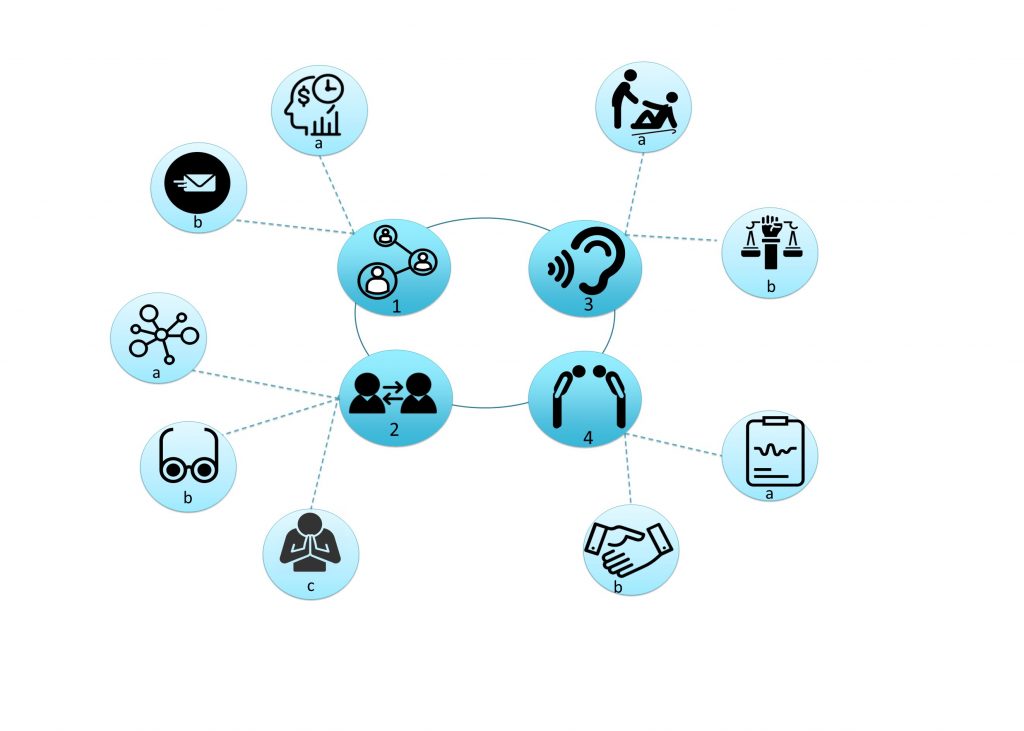Figure above: Insights from interdisciplinary researchers working with coastal communities – 1: Build rapport by (a) dedicating time to the communities and (b) keep in touch with them. 2: Engage and exchange: (a) invest in networking, (b) be open to new points of view and sources of knowledge, and (c) be humble. 3: Be accommodating and attentive to communities’ aspirations by (a) leaving no one behind and b) avoiding creating mechanisms that promote power grabbing or imbalance. Insight 4: Be respectful by (a) not treating communities as a simple means to test scientific hypotheses and (b) by promising them only what can be reasonably delivered.
Authors: Annette Breckwoldt, Priscila Lopes and Samiya A. Selim
Transdisciplinary marine conservation researchers often arrive to conduct their research with preformulated research questions and a set research agenda without any input from the people on the ground regarding local interests and the specific geographical, social, cultural, and ecological setting where the research will be conducted. Consequently, the researchers may not always have the support of local communities, although they are essential to pursue a collaborative regime and to be informed by the research outcome. This paper discusses measures that can be taken by marine fisheries and conservation researchers to improve participation in, and ownership of, the research by the communities where the research is conducted. Data generated from a purposively sampled survey of 18 members of our especially relevant in extreme circumstances (e.g., disasters, pandemics), when the myriad of problems can only be assessed by those on the ground. We suggest, quicker progress in transforming academic and funding environments for true “level-playing-field” transdisciplinary and co-designed research projects to help change top-down research tendencies.
Read more here
